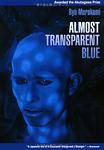Ryū Murakami
Ryū Murakami is a Japanese novelist, filmmaker, and essayist. Born on February 19, 1952, in Sasebo, Nagasaki, he is known for his versatile style and dark themes that often explore the underbelly of society. His notable works include 'Almost Transparent Blue', 'Coin Locker Babies', and 'In the Miso Soup'. Murakami's writing often delves into issues of violence, addiction, and the complexities of human psychology, earning him a reputation as a provocative and influential figure in contemporary Japanese literature.
Books
This list of books are ONLY the books that have been ranked on the lists that are aggregated on this site. This is not a comprehensive list of all books by this author.
-
1. Almost Transparent Blue
The novel is a vivid and disturbing exploration of the lives of a group of young people living in a Japanese port town in the 1970s. They are involved in a hedonistic lifestyle, filled with sex, drugs, and rock and roll, as they aimlessly drift through life. The protagonist, a former student, serves as the narrator, describing the group's experiences in graphic detail, revealing a bleak picture of a generation lost in the aftermath of the post-war economic boom. The narrative's raw and unflinching portrayal of the underbelly of Japanese youth culture is underscored by themes of alienation, self-destruction, and the search for meaning in a chaotic world.
-
2. Coin Locker Babies
The book follows the harrowing journey of two boys abandoned at birth in a Tokyo train station locker, who grow up in an orphanage together and form a deep bond. As they navigate a dystopian underworld filled with violence and decay, the boys, now teenagers, embark on a quest for revenge against the mothers who left them and the society that neglected them. Their search for identity and belonging takes them through a surreal landscape of urban chaos, where their shared trauma and desperation for meaning lead them down a destructive path, challenging the reader with themes of abandonment, survival, and the human capacity for both love and brutality.

